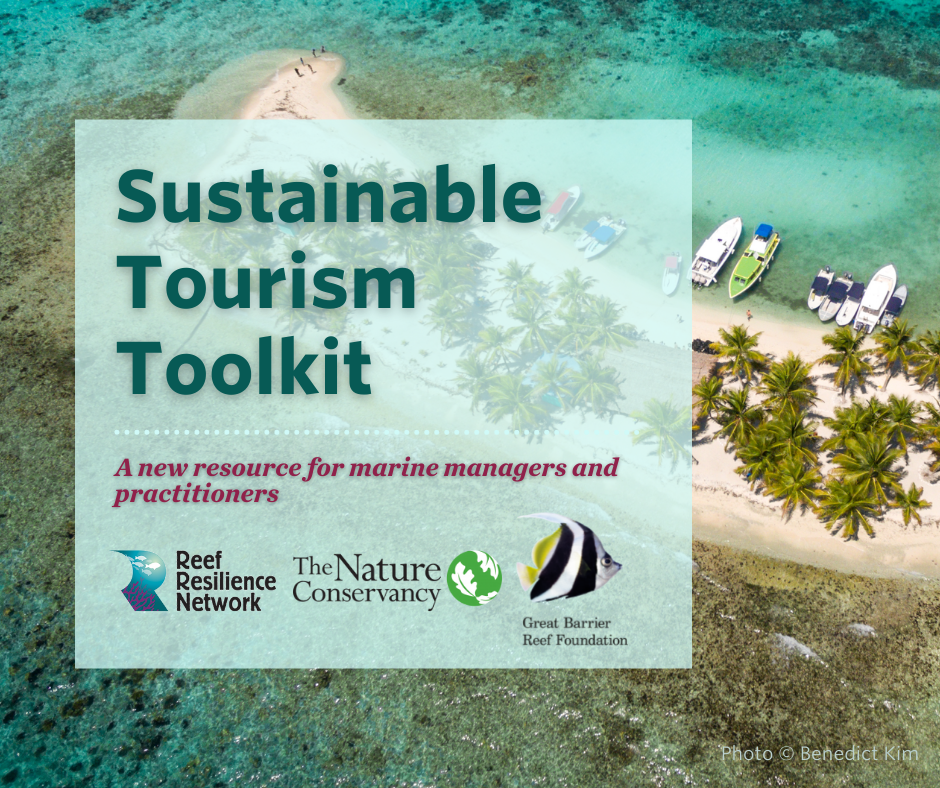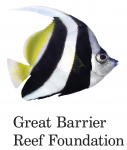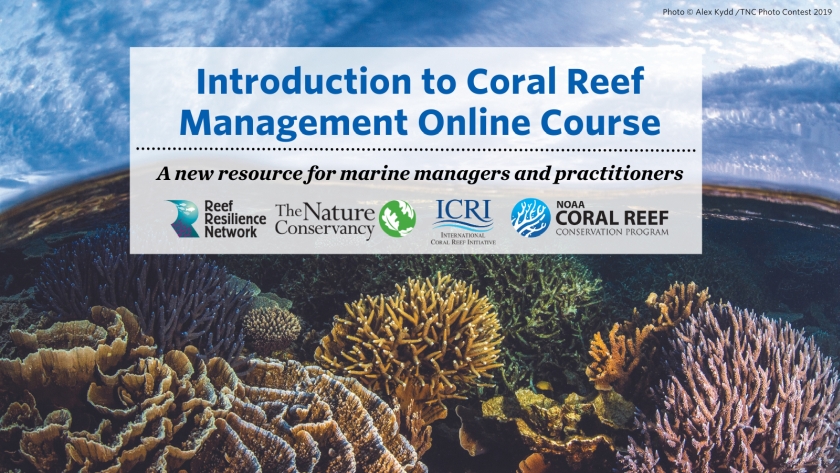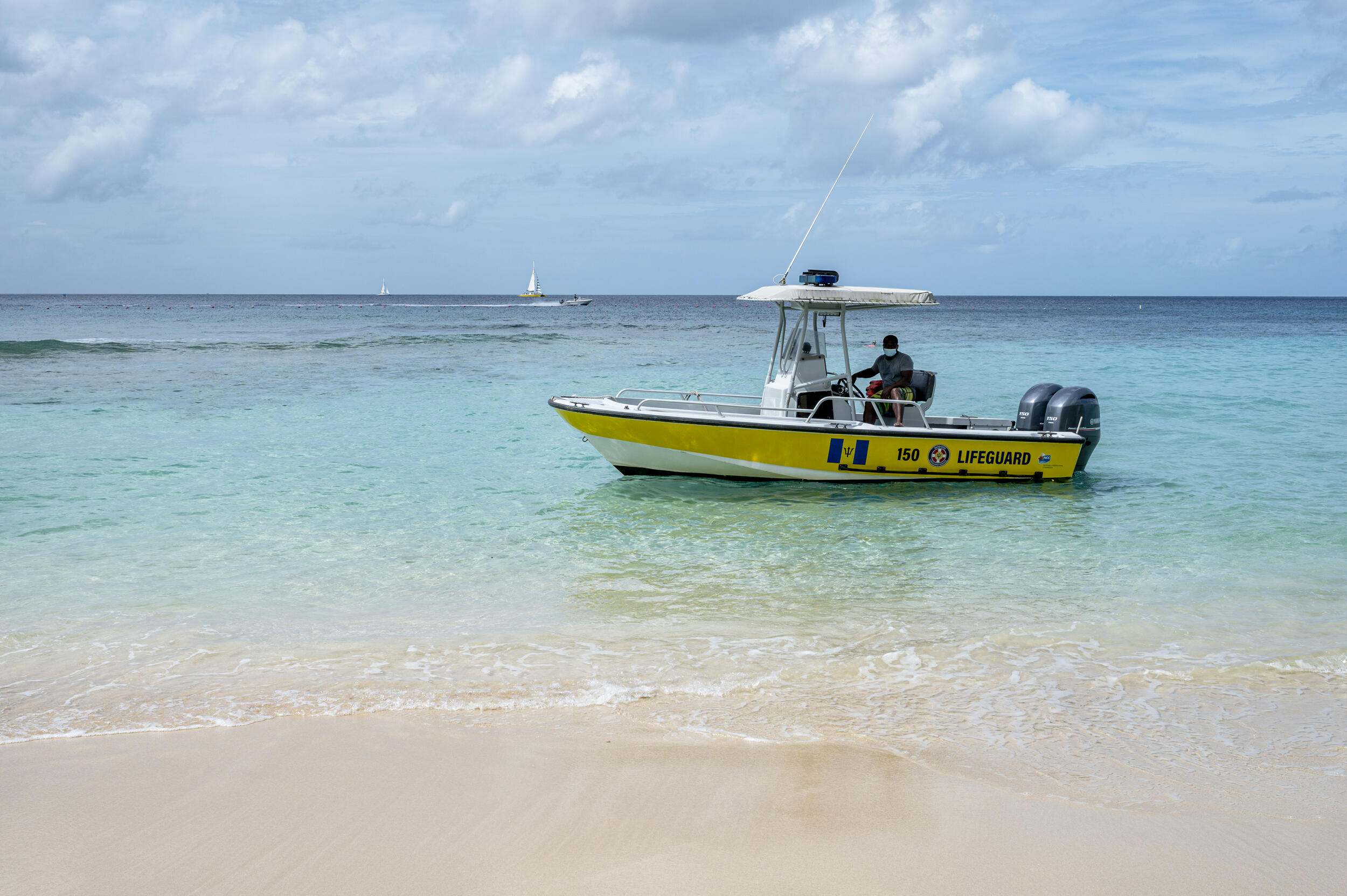
The coral reef tourism industry can bring great economic benefits to an area, but it can also prove unsustainable and put substantial stress on coral reefs and the people who depend on them. Some communities are ill-equipped to cope with high tourist volumes, while other communities that rely heavily on tourism income can be devastated by unforeseen circumstances, like the COVID-19 pandemic or hurricanes. How can we develop sustainable tourism plans that are adaptable to the unique and changing circumstances at local reef sites, while simultaneously supporting local livelihoods and generating income that supports conservation?
To address this question, three topics were explored during the 2021 Resilient Reefs Initiative Solution Exchange and are summarized in the new Sustainable Tourism Toolkit:
- Understanding and monitoring optimal ecological, social, and economic carrying capacities
- Strategies for shifting tourist behavior to better meet local resilience goals
- Understanding the local tourism sector and identifying opportunities for diversifying livelihoods
Ten presentations from the Solution Exchange are also available in English and French and can be found throughout the Toolkit’s pages, which was created in collaboration with the Great Barrier Reef Foundation.
About the Resilient Reefs Initiative
The Resilient Reefs Initiative (RRI) is a global initiative to support UNESCO World Heritage-listed coral reefs and the communities that depend on them to adapt to climate change and local threats. RRI is piloting work with communities in four UNESCO World Heritage reef sites: Ningaloo Coast, Australia; Lagoons of New Caledonia: Reef Diversity and Associated Ecosystems, France; Belize Barrier Reef Reserve System; and Rock Islands Southern Lagoon, Palau.



